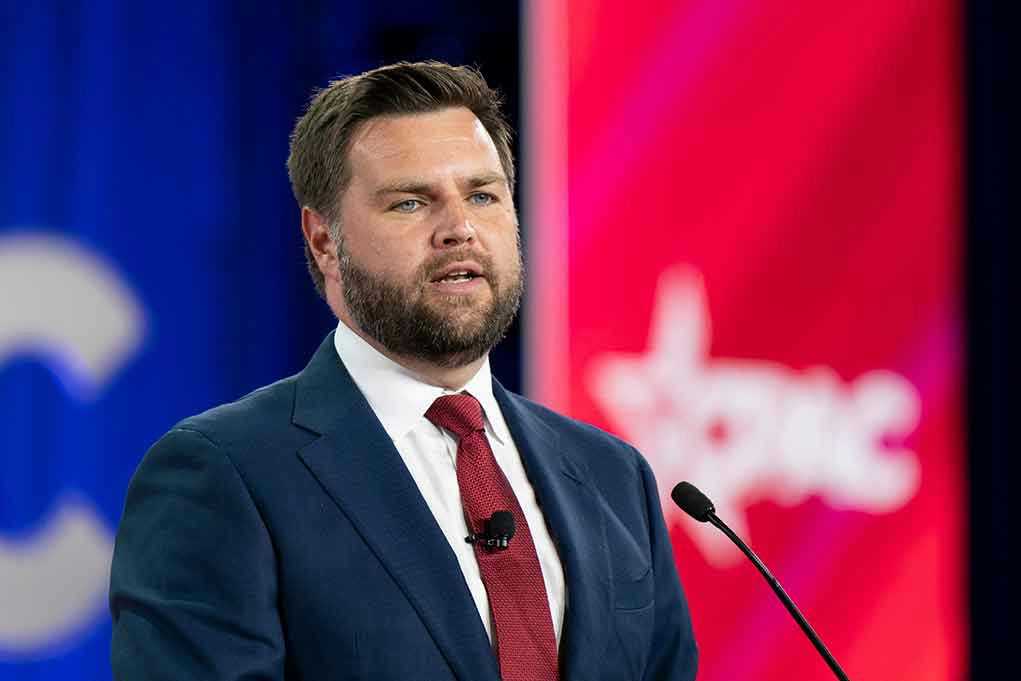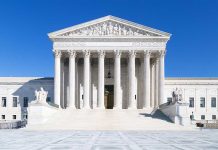
Democrat leaders are fiercely opposing President Trump’s federal crime crackdown in D.C., but Vice President JD Vance is questioning why their anger targets enforcement efforts rather than the violent crime plaguing the capital.
Story Snapshot
- President Trump has deployed federal resources and the National Guard to address persistent violent crime in Washington, D.C.
- Democratic governors and city leaders condemn the intervention, calling it an attack on local autonomy and a political stunt.
- Vice President JD Vance challenges critics, asking why opposition is aimed at federal intervention instead of the crime crisis itself.
- The standoff exposes deep partisan divisions over law enforcement, public safety, and constitutional authority in America’s cities.
Federal Intervention Sparks Clash Over Control in D.C.
President Trump’s declaration of a crime emergency in Washington, D.C. on August 11, 2025, triggered a wave of federal action to address the city’s persistent violent crime problem. Trump signed executive orders authorizing expanded federal law enforcement presence, deploying the National Guard, and increasing resources for public safety. The administration’s move is rooted in D.C.’s unique status as a federal district, granting the president broad authority to intervene—especially when local leaders are perceived as failing to protect residents.
By late August, Trump announced plans to extend the crackdown to other cities such as Chicago, requesting $2 billion from Congress to fund improvements targeting the areas surrounding the Capitol and White House. The action follows alarming crime data: in 2024, D.C. reported the nation’s highest vehicle theft rate and a homicide rate of 27.54 per 100,000 residents. While city officials argue that reforms have reduced violent crime by 26% since 2024, the capital remains one of America’s most dangerous cities, fueling public frustration and calls for stronger enforcement.
Democratic Opposition and the Battle Over Local Autonomy
D.C. Mayor Muriel Bowser and Democratic governors swiftly condemned Trump’s intervention, labeling it political overreach and an affront to local self-governance. Bowser asserts that recent crime declines are proof that local reforms—including law changes and targeted policing—are working. She decries the use of the National Guard as an “armed militia,” and city leaders warn that federal involvement risks undermining community trust and constitutional checks on executive power. The dispute echoes long-running tensions over D.C.’s autonomy, intensified this year by heightened partisan rhetoric ahead of the 2026 midterms.
Democrats claim the crackdown is a manufactured crisis, designed to score political points and distract from ongoing debates about criminal justice reform, such as cashless bail and police funding. Congress, divided along party lines, controls D.C.’s funding and oversight, making it the next battleground for legislation on law enforcement and local governance. The standoff spotlights questions about the legitimate scope of presidential authority and the enduring struggle between federal power and local control in American cities.
Vance Reframes the Debate: Priority of Public Safety
Vice President JD Vance has seized the moment to challenge Democratic critics publicly. In a high-profile speech, Vance asked why Democratic leaders appear more outraged at Trump’s intervention than at the violent crime threatening D.C. families and federal workers. He frames the debate as a question of priorities, arguing that public safety should transcend partisan politics. For many conservative Americans, this resonates with longstanding concerns about government overreach, constitutional rights, and the erosion of law and order under progressive policies.
Vance’s argument echoes conservative frustrations with “woke” agendas and perceived leniency toward crime. His position is that restoring order and upholding the Constitution—specifically, the federal government’s duty to protect the nation’s capital—should outweigh political grandstanding. While law enforcement experts remain divided on the efficacy and legality of such interventions, Vance’s framing places the question squarely in the arena of American values: Should political leaders defend local autonomy at the expense of public safety, or should federal authority step in when lives and constitutional rights are at risk?
Broader Implications: Precedent and Partisan Tensions
The outcome of Trump’s intervention holds serious consequences. In the short term, D.C. faces increased law enforcement, potential legal clashes, and further strain between federal and local authorities. Long-term, these actions could set new precedents for federal involvement in local crime, affect debates over D.C. statehood, and shape national crime policy for years. Communities affected by crime, local police caught between conflicting directives, and all Americans concerned with the Constitution will be watching closely as this power struggle unfolds in the nation’s capital.
Vance questions why Democrats are angrier about Trump’s plan to tackle crime than crime itself https://t.co/jOSVFMebjv via @OANN
This is a good question no?
— Darrin Walker (@DarrinLWalker) August 26, 2025
Despite claims of progress from local officials, many residents and conservative observers see the intervention as overdue. The fierce pushback from Democrats signals ongoing gridlock in American politics, where law and order, constitutional authority, and the safety of families remain on the front lines of the nation’s most heated debates.
Sources:
Trump’s executive orders and local response (The National Desk)
Crime statistics, political statements, funding requests (ABC News)
Crime emergency declaration, legal basis (White House official release)











